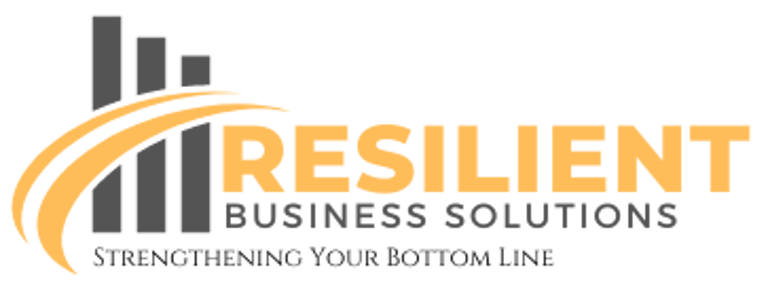Understanding Business Expenses: What You Can and Can’t Deduct
Gain a clear understanding of which business expenses are tax-deductible and which aren't, with expert insights to help you maximize your deductions and stay compliant.
4 min read


Introduction to Business Expenses and Tax Deduction
In the realm of business finance, an essential component to comprehend is business expenses. These expenses are the costs that a business incurs through its operations, ranging from daily operational costs to major investments. Properly identifying and categorizing these expenditures play a pivotal role in financial management and tax preparation. Tracking business expenses meticulously is not just about maintaining organized books; it is about leveraging potential tax deductions to optimize your tax returns.
Tax deductions are reductions in taxable income, which can ultimately lower your tax liability. They serve as an incentive provided by the tax authorities to encourage business growth and economic activities. When you have a comprehensive understanding of what constitutes a deductible expense, you can significantly enhance your tax planning strategies. This not only ensures compliance with tax laws but also maximizes your financial benefits.
However, it is crucial to recognize that not all business expenses are deductible. The Internal Revenue Service (IRS) stipulates certain criteria for an expense to be deductible. Generally, deductible expenses must be ordinary and necessary, meaning they are common and accepted in your trade or business, and they are appropriate and helpful to your business activities. Understanding these distinctions can help you avoid errors in your tax filings and potential penalties.
The benefits of grasping the nuances of deductible expenses cannot be overstated. A solid foundation in this area can lead to more accurate tax filings, potential savings on tax payments, and enhanced financial health for your business. As you navigate through the specifics of what can and cannot be deducted, keep in mind that meticulous record-keeping and a clear understanding of tax guidelines are your greatest allies. This preliminary insight sets the stage for a deeper exploration into the specifics of deductible and non-deductible business expenses.
Common Business Expenses That Are Tax-Deductible
Understanding which business expenses can be tax-deductible is vital for any business owner aiming to optimize their finances. Generally, tax-deductible business expenses fall into several key categories.
Operating Expenses: These include everyday costs necessary for running your business. Examples are rent for office space, utilities like electricity and water, and office supplies such as paper, pens, and printer ink. It's important to note that these expenses must be both "ordinary and necessary," as defined by the IRS, to be deductible. This means they should be common in your industry and helpful for your business operations.
Travel Expenses: Deductible travel expenses are those incurred while traveling for business purposes. This includes airfare, hotel accommodations, car rentals, and even meals. However, there are limitations and conditions. For instance, business travel must be primarily for work-related activities, and personal vacation expenses are not deductible. Keeping detailed records of travel dates, purpose, and related receipts is crucial for substantiating these deductions.
Employee-Related Costs: Wages paid to employees, along with contributions to employee benefit programs like health insurance and retirement plans, are typically deductible. Employee bonuses and commissions also fall under this category. However, it is essential that these payments are reasonable and directly linked to services provided to be considered deductible.
Proper documentation is key in all these cases. The IRS requires that all deducted expenses be well-documented. This means maintaining receipts, invoices, travel logs, and any other relevant paperwork. Such meticulous record-keeping not only helps in accurate tax filing but also safeguards against potential audits and disputes.
By thoroughly understanding and leveraging these tax-deductible business expenses, companies can significantly reduce their taxable income, leading to substantial financial savings. Ensuring that all deductions are well-documented and justified is a fundamental practice for effective financial management.
Expenses That Are Typically Non-Deductible and Common Misconceptions
When managing business expenses, it is crucial to distinguish between deductible and non-deductible costs. Understanding the nuances can help avoid costly mistakes. Among the commonly non-deductible expenses are personal expenses. The IRS stipulates that any expenditure made for personal use or benefit, such as personal travel, clothing, or household groceries, cannot be deducted from business profits. It is imperative to keep a clear line between personal and business expenditures to avoid confusion and potential penalties.
Another category of non-deductible costs includes fines and penalties. Any fine or penalty paid to a government agency or regulatory body does not qualify for deduction. This applies irrespective of whether the fine pertains to business operations. Therefore, infractions such as parking tickets, environmental fines, or occupational safety penalties are strictly non-deductible.
Entertainment costs also pose a common pitfall for many business owners. While certain meal expenses can be partially deductible, expenses related to entertainment, amusement, or recreation generally do not qualify. For instance, tickets to a concert, sporting event, or any other similar event are not deductible under current tax laws.
Common misconceptions often arise in areas where expenses serve both personal and business purposes. Mixed-use expenses, such as a cell phone or a vehicle used for both personal and professional purposes, cannot be entirely deductible unless well-documented to delineate personal from business use. Similarly, excessive meal costs and lavish expenditures that lack a thorough business justification frequently fall into the gray zone of non-deductible expenses. Clear records and prudent judgment are essential to avoiding misclaims.
Given the complexity of tax regulations around deductibles, consulting with a tax professional is strongly advised. A tax expert can provide tailored advice, ensure compliance, and help distinguish between what qualifies for a deduction and what does not, ultimately protecting a business from legal issues and financial discrepancies.
When You Are Ready
Ready to simplify your business finances? At Resilient Business Solutions, we’re here to take the stress out of managing your books so you can focus on what you do best—growing your business. Whether you need help with bookkeeping, invoicing, or managing payables and receivables, we’ve got you covered. Contact us today to learn how we can support your business with reliable, expert financial services. Let’s build a resilient future together!
Strengthening Your Bottom Line
Customized financial support to empower your business success.
Get Our Free 50+ Page Small Business Success Guide Now
© 2024. All rights reserved.
